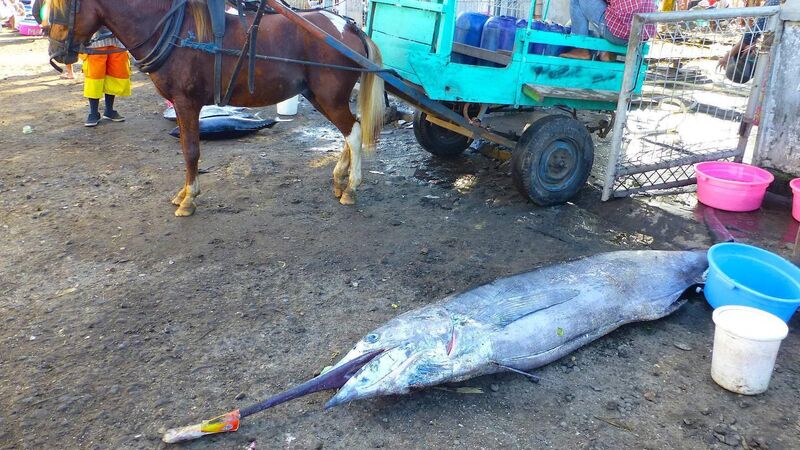We can longer turn a blind eye to the damage done to our seas

A swordfish at a fish market in Lombok, Indonesia. Inshore species have been decimated by industrial fishing. Top-predator 'game' fish are now caught for food.
The UK proposes to ban bottom trawling — weighted nets being dragged over the sea bed — in four Marine Protected Areas (MPA) including the Dogger Bank, which is half the size of Wales and a vital breeding ground for cod, whiting, and sand eels — food not only for fish but for sea birds. The UK government says the ban will be imposed now that these areas are beneath exclusively British seas. EU nations have failed to end overfishing, and to protect habitats from bottom trawling.
Britain has the same abysmal record. Some 97% of British MPAs continue to be bottom trawled. As for the seas within Ireland's Exclusive Economic Zone (EEZ), I quote the data: 218 MPAs, of which 1.2% are "Less Protected" and 1% "Designated but Unimplemented Zones" — not protected at all.










